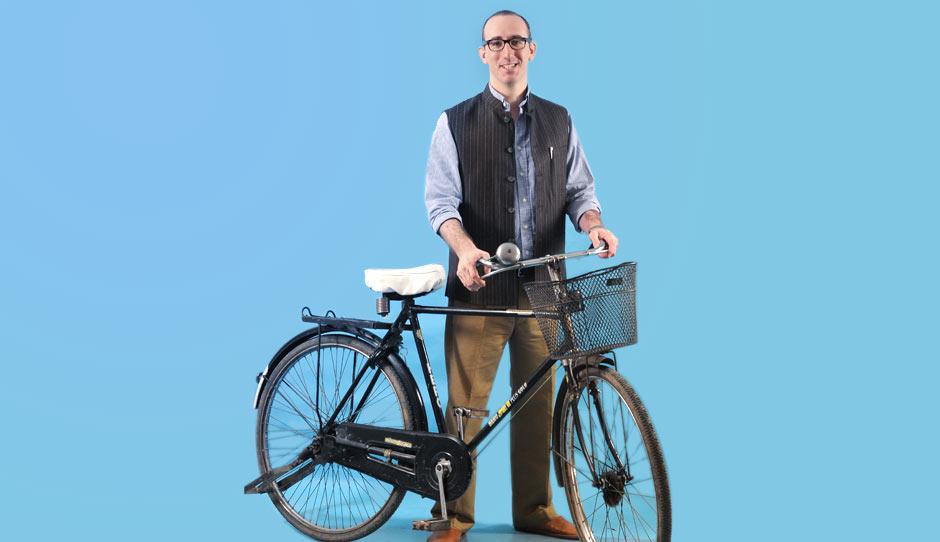Foreign Desis Club: Omnivore Partners
- BY Ira Swasti
 In Strategy
In Strategy 12017
12017 0
0

Mark Kahn says he’s been an Indophile since the age of 13. Growing up amidst a bustling Indian diaspora in Houston, Texas, Kahn’s affinity for India continued to grow into his college days at the University of Pennsylvania when he first visited India, and later at Harvard Business School where he became the first firang to run the South Asian Association. In 2008, he moved to India to work with Godrej Agrovet, the agribusiness vertical of Godrej Industries. In 2010, Kahn co-founded Omnivore Partners, a venture fund to invest in food and agriculture technology companies in India. It was a dream move for Kahn as it fused his three big passions—India, agriculture and technology (possibly, in that order). Omnivore Partners has had an exciting nearly four years. Kahn and his co-founder, Jinesh Shah, have raised a first fund of Rs260 Crore (all from India), and have invested in nine companies, including a farm machines business in Rajkot and an agri supply chain technology firm in Bangalore. His relentless travels across India has given him an understanding of the country and its agriculture that would put most Indians to shame. Doing business here though has shattered his earlier romantic illusions about India, Kahn confesses, although he can’t imagine living anywhere else now.
My Challenges:
But, I don’t think these things are just difficult for an immigrant like me. Everyone from the MD of Reliance to the chaiwallah is similarly affected. My big personal challenge is one of credibility. India is not used to having foreigners who understand its culture and language. Sometimes it gets frustrating that after living here for a decade, people still ask you if you’re going to be okay drinkingwater or if the food’s too spicy. I’m from Texas. We eat chillies that would kill you. The one thing I feel I have to constantly do is to reassert my credibility every time I meet somebody new.Building a business is tough anywhere. It’s only more so in India. First, there is an incredible amount of competition, a hostile regulatory environment and massive amounts of uncertainty. It makes planning very difficult. There’s also a classic tendency in India for everything to be illegal unless specifically given permission. That’s how Bharat sarkaar likes things to be. It likes people to always be on their toes. Then, with respect to suppliers, customers and employees, contractual agreements are quite callously treated because of the lack of legal recourse. I’ve gotten so used to being hammered that it has hardened the hell out of me. Getting stuck in Delhi traffic for two hours? It’s fine. Things being screwed up the first six times? Fine.Nobody ever saying if anything’s wrong? Fine. People saying it’s 15 minutes when it’s 15 hours? Fine. When you’ve been here long enough and lived through these disappointments, your expectations get calibrated by experience.

The India Opportunity:
More than anything else though, India offfers a gigantic opportunity for both profits and impact. Our fund invests in ventures in agriculture and food technology. There are nine companies in our portfolio so far—one in Noida, one in Rajkot, three in Bangalore, one in Vijayawada, one in Nashik, one in Guwahati and one in Salem. I am very confident that India will achieve long-term food security provided that the innovation required to realise those yields are allowed to disseminate. India has 1.2 billion mouths to feed so we’re more than okay on the demand side. On the supply side, the yields are so atrociously bad that seeing it double and triple is very forseeable.My love for India since when I first came here as a backpacker has become a lot less naïve. Actually, it’s almost like an abusive relationship—India beats the hell out of me and I still love it. I would be bored anywhere else.
To be honest, some things are easier in India. The Indian approach to professional life, which is to say, do your work right and outsource everything else (cooking, cleaning, driving) is something that works very well for me. I tend to work about 80 hours a week and travel 75 per cent of the time so I find this set-up personally quite effective.





























Add new comment